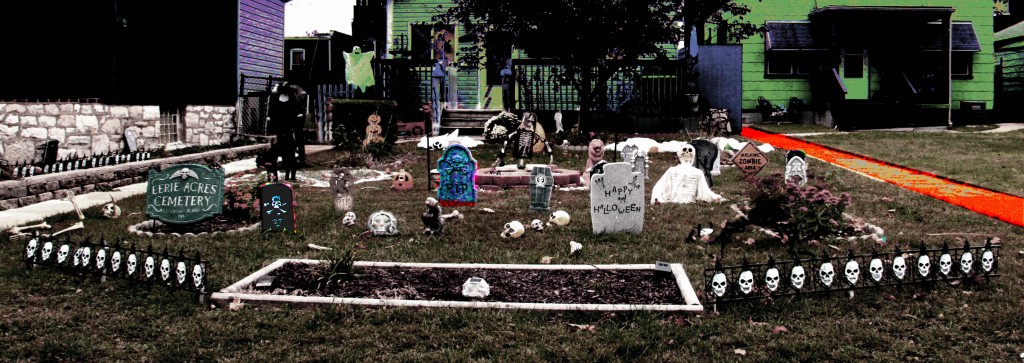It seems unlikely I’ll finish another book before this Sunday—if I do it will probably be Stefanie Pintoff‘s second Simon Ziele mystery, A Curtain Falls. I read the first in the series, In The Shadow of Gotham, not too long ago and enjoyed it. It’s a period mystery, set in 1905, and features a progressive police detective from New York—Ziele—who teams up with an amateur criminologist, Alistair Sinclair, who is attempting to construct a science of criminal behavior. Ms. Pintoff avoids many pitfalls by keeping the level of expertise firmly locked in 1905 and Sinclair makes as many if not more wrong conclusions as right, but it was an entertaining piece of work and the evocation of 1905 New York was excellent. Somewhat more engaging than a similarly period series by Rhys Bowen, the Molly Murphy mysteries, which are also rich in period detail, but a bit more of a stretch about an Irish immigrant who falls into the detective business rather by accident and then tries to make a go of it. These are set during and after the McKinley presidency and one book even deals directly with his assassination. For a peek into the more bohemian parts of New York, they are wonderful. Ms Bowen sells the conceit well, but once you put one of them down you have to wonder just how likely it would be.
I found myself reading a lot of mysteries this past year. As I’ve been moving into that genre—two of the novels in the hands of my new agent are mysteries, one a historical, the other contemporary, and I have every intention of continuing them as series (and even the alternate history is largely a mystery thriller)—I decided I needed to become better acquainted with what’s being done. I read a couple of the more obvious ones—Laura Lippmann and Tess Gerritsen made the list, as did a couple of Michael Connelly’s and one James Patterson—but I also found some less obvious ones (at least to me).
One series I’ve become quite taken with is Margaret Maron‘s Deborah Knott series, beginning with Bootlegger’s Daughter. I’ve read eleven of these, all this past year. They are charming. Deborah Knott is the only daughter of a man who was once the biggest bootlegger in North Carolina and adjoining states. He’s out of the business—sort of—and she has become an attorney. By the end of the first novel she’s decided to run for a local judgeship and through the rest of the series she is a judge. This is of the “stumble into murders” kind of cozy mystery writing. It’s as much about the people of the area and the history as it is about solving a murder and the first-person narrative is comfortable and evocative. I found myself devouring one of these over a weekend like popcorn.
I also continued reading Laurie King’s Mary Russell books, ending this year with The Pirate King, which is a comedy. Not quite as successful as the rest of the series, but not bad. I caught up on her Kate Martinelli novels, too.
Among the other mysteries this past year I read another of Cara Black‘s Paris mysteries featuring Aimee LeDuc, private investigator. This one was set on the Ile St. Louis and I read it as much for that as for the mystery, since I have upcoming scenes in one of my novels set there. If you like Paris and you like tough female detectives of the Honey West pedigree, these are worth the time. (I recall the first one of these I read annoyed me because it involved a WWII Occupation mystery. Some of this is becoming a stretch by now—these people are getting ancient and dying and I have to wonder how credible contemporary plots concerning survivors from 1942 can continue to be, but…)
I mentioned I read a James Patterson. I’ve been hearing so much about this guy that I decided I had to read one. I won’t even mention which one, it was terrible from the first chapter. Cliched writing, facile plotting, and predictable…everything. I put it down wondering, what is supposed to be so great about this guy? But he comes out of a marketing background and the sheer volume he produces—much of it now with other writers—must simply overwhelm the public.
However, both Dennis Lehane and Michael Connelly did not disappoint, although in Lehane’s case the level of mayhem seemed borderline cartoonish. Nevertheless, he held my attention, quickened my pulse a couple of times. Connelly proved solid, at least in the one I read, Blood Work. In Lehane’s case, I found a curiosity, a historical novel, The Given Day, which is on my list for next year. So as this is about what I read in 2011, you’ll have to wait.
I also continued my Ross McDonald reading with The Drowning Pool. I have a bunch more of these to read, but they are so far all gems. Ross McDonald is I think underappreciated. He was a master of the noirish and hardboiled style. Which segues into a classic I read which I’d never read before, James M. Cain’s Mildred Pierce. I don’t know exactly what I expected, based on The Postman Always Rings Twice and Double Indemnity, but it wasn’t this, and it was a surprise. It’s not a mystery—at least not in the detective sense—and yet you can fully feel the noirish elements come through in this story of a woman during the Depression who boots out her philandering husband and then has to make a go of it on her own. She subsequently becomes a very successful restaurateur, but her attempts to live up to the standards her daughter—a true enfant terrible—thinks she should embrace end up bringing her down, even as the daughter grows up to get just about everything she wants. At the end Mildred is back with the husband and you get the sense that she’s going to build it all up again—and this time make it stick, since the daughter has finally been banished. I put it down with a “Jaysus” reaction.
I can also recommend new writer Rebecca Cantrell‘s series, beginning with A Trace of Smoke about a female reporter in pre-war Berlin. This would be a decent companion piece to Philip Kerr’s Bernie Gunther series.
I read my first Val McDermid novel, A Distant Echo, which I highly recommend. It details the consequences of a false police accusation on four friends over the years. They find the corpse of a barmaid in a cemetery, but as the police have no leads going anywhere else these four become the prime suspects. Of course, nothing connects them to her murder, either. But the press gets ahold of it and their lives all take unexpected turns. Then, years later, someone starts killing them and two of them work to solve the crime.
Among the non-mysteries I read this past year were also a couple that I ought to have but never got around to. I read Richard Powers’ The Gold Bug Variations, which is a kind of tour-de-force of kitchen sink writing that ties Bach’s music into the unraveling of the genetic code, all through the lens of a woman trying to solve the puzzle of a scientist who should have been one of the luminaries of the discovery of DNA but instead suffered the end of his career and ignominy. Tight, colorful writing, bizarre connections. It reminded me of Thomas Pynchon, only more controlled and with a readily-discernible plot.
I also read Charlotte’s Web for the first time ever. I am woefully under-read in childrens and YA literature. During the time of my life I should have been reading this, I was deep into comics and then my mother’s book-of-the-month club books, which were all adult. At the same time I discovered science fiction and, well, that’s one category of Jeopardy I always fail. Along with that one I also read—for the first time ever—The Phantom Tollbooth. I doubt this is going to signal a spree of children-and-YA reading, but both of those books were well worth the read, especially the Juster.
I only read one Dickens this year, The Old Curiosity Shop, which has to be one of the most maudlin of his novels. I kept thinking about Little Nell “Will you bloody die already!” But I can see how this would have been a show-stopper when it came out. It may be one of the best treatments from the period of addictive behavior, especially of gambling addiction.
I finally read Michael Moorcock’s Mother London, which has been on my shelf for a decade at least. It’s not an easy one to get into, but once you realize what’s going on—a trio of telepaths who don’t quite realize that this is what they are finding solace with each other through the changing landscape of wartime and post-war London—it is marvelous. Moorcock is deceptive in that he has written some real crap (The Blood Red Game should be avoided). But he is a truly fine stylist and a first-rate imaginative intellect when he chooses to be and Mother London is a fine novel that should be considered a classic.
And speaking of London during the war, I read Connie Willis’s massive opus, both volumes—Blackout and All Clear—and can recommend it to anyone who is seriously into WWII history. She has clearly done her homework and her decision to write about the Blitz from the viewpoint of the residents, albeit using her time traveling historians as vehicles, has produced a fascinating take on London at the time. (I must say, though, that one of Willis’s hallmark plot devices—the continual miscommunication and near misses of people trying to find each other—which has worked effectively in the past, is growing wearisome by now. We get it, reality does not follow a neat plot logic, people fail, messages don’t get delivered, etc etc—but enough is enough already.) This may be the end of the Mr. Dunworthy stories, though. May be. This is time travel, after all.
I read a couple of newer novels that I want to recommend, both more or less science fiction. The first is The Dream of Perpetual Motion by Dexter Palmer. This is a steampunk take on The Tempest. Sort of. I don’t wish to get into it too deeply, but I was taken with it primarily because it is steampunk without zombies! I am growing tired of the monster-of-the-week in genre fiction. Vampires, now zombies. Dead things that move around do not fascinate me and too often they entail grue for the sake of grue. Enough already! (I put aside two steampunk novels that looked otherwise intriguing because, within 10 pages, there are zombies.) To me, good steampunk is in the vein of The Difference Engine. And Palmer delivers. The writing is elegant, the world evocative, the symbolism and metaphors nicely deployed. Not the best it could be, but high up on my scale.
The other is by a good friend of mine, Carolyn Ives Gilman. Isles of the Forsaken is a novel with which I’ve been familiar for a long time. It was the first manuscript Carolyn gave me for a critique. It has finally come out—though this is but the first half—and it is wonderful. Set on a world that is like but not like ours, during a period much like the hegemony of Great Britain in the 19th Century, it is about the clash of cultures. Bear in mind, who is the good guy and who is the bad guy is pretty much dependent on the reader’s expectations. This is fine stuff.
I didn’t read much science fiction this past year. Out of the 79 I read cover to cover, only 16 were definitely SF. I can recommend Leviathan Wakes by James S. Correy—a very good thriller, a shitkicker, well-written and realized. First one of a series (of course—I miss they dominance of the stand-alone anymore). I also read Keith Roberts’ Pavane, a classic alternate history, and a fine, fine piece of writing it is.
The other SF novel I’m recommending is Gene Wolfe’s Home Fires. It’s been a while since Gene has done a straightfoward science fiction novel (if any of his work can ever be called straightforward!) and this one is a subtle study of mismatched personalities and desires that will not be thwarted. It’s love story with a relativistic time-dilation element complicating it. Now, I tend to like almost anything Gene does, so take this recommendation in that context, but I think it may be one of his best. He has pulled back from the epic vistas of some of his earlier SFnal efforts, like The Book of the Long Sun and such and centered this through one viewpoint character and closely-controlled scenario that is almost claustrophobic compared to his other work. But it works.
I read some flops, but I won’t go into them here—except for the comments on Patterson above—because I’m not sure if the books were really bad or if they just bounced off. (One of them I thought a derivative bit of schlock, phoned in by an author who has done excellent work in the past, but just took a stroll on this one.) There was another that was a convoluted bit of experimental strain that couldn’t decide if it was a mystery, Kafkaesque, Pynchonesque, or an exercise in abstruse symbolism.
I will read less next year. I already know that. I have several bricks on the pile that will require long hours and extra attention. At least, it is my plan to get through some of them, but we’ll see how that works out.
Among the others that I enjoyed and can recommend I offer: Counting Heads by David Marusek, Midnight In the Garden of Good and Evil by John Berendt, A Conspiracy of Paper by David Liss, The Gift by Lewis Hyde, On Mozart by Anthony Burgess, and Birth of the Modern by Paul Johnson. Allen Steele has a new one out, Hex, set in his Coyote universe and well worth the read. Scott Philips also has a new one out, The Adjustment, which is a fine example of Scott’s idiosyncratic noir style.
Notice that the book links included all go to Left Bank Books. I’m going to be doing that from now on, at least where I don’t link directly to an author’s page. Support your local bookstore. You’ll miss them when they’re gone, so don’t let them be gone. Believe me, there really isn’t much Amazon can offer you that a good independent bookstore can’t, and that sucking sound of local tax revenue leaving your community and your state is the sound that accompanies our current fiscal woes.
End of sales pitch. I’ll talk about the other things in 2011 later.







